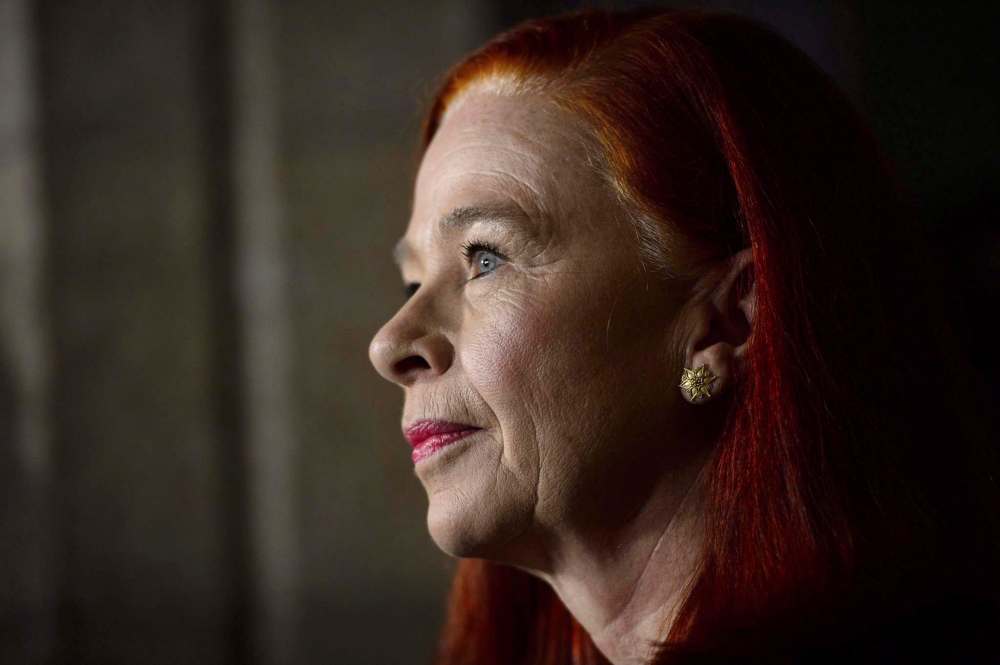There’s opportunity in Cancon, but for whom?
Read this article for free:
or
Already have an account? Log in here »
To continue reading, please subscribe:
Monthly Digital Subscription
$0 for the first 4 weeks*
- Enjoy unlimited reading on winnipegfreepress.com
- Read the E-Edition, our digital replica newspaper
- Access News Break, our award-winning app
- Play interactive puzzles
*No charge for 4 weeks then price increases to the regular rate of $19.00 plus GST every four weeks. Offer available to new and qualified returning subscribers only. Cancel any time.
Monthly Digital Subscription
$4.75/week*
- Enjoy unlimited reading on winnipegfreepress.com
- Read the E-Edition, our digital replica newspaper
- Access News Break, our award-winning app
- Play interactive puzzles
*Billed as $19 plus GST every four weeks. Cancel any time.
To continue reading, please subscribe:
Add Free Press access to your Brandon Sun subscription for only an additional
$1 for the first 4 weeks*
*Your next subscription payment will increase by $1.00 and you will be charged $16.99 plus GST for four weeks. After four weeks, your payment will increase to $23.99 plus GST every four weeks.
Read unlimited articles for free today:
or
Already have an account? Log in here »
Hey there, time traveller!
This article was published 06/02/2019 (2498 days ago), so information in it may no longer be current.
On a panel organized by the Canadian Media Producers Association in Ottawa last Thursday, CBC boss Catherine Tait compared the growing global influence of Netflix to colonialism.
It was one of those “Wait… what?” statements critics could easily seize upon because, on its face, the comparison sounds bizarre, tone-deaf and melodramatic all at the same time. After all, it’s not as though the streaming service is subjugating nations of people, erasing their languages and cultures, and also giving them smallpox. And before one evokes imagery of “cultural imperialism,” it’s probably worth remembering that, without colonization, neither Canadians nor their television shows would exist in the first place.
Of course, that’s not what Ms. Tait said or even implied, which is the trouble with these kinds of statements in the nuance-bereft era of Twitter. Set aside the imperfect and inflammatory analogy for a moment and you’ll find Ms. Tait has a point.

Netflix’s spread into Canada has been less of a violent takeover and more of an insidious creep. And its influence sounds positive. Netflix will be the very first to point out, as Stéphane Cardin, Netflix’s director of public policy for Canada, did, that it has already committed to spending hundreds of millions of dollars on production in Canada — of its own volition, not because of some regulatory policy.
Netflix’s massive reach is also able to get Canadian programming onto screens all over the world. For example, the streaming giant made U.S. hits out of Canadian TV series such as Schitt’s Creek and Kim’s Convenience — both CBC shows, by the way — and Netflix Canada is home to an even larger stable of CBC originals that tell Canadian stories.
Canadians being able to tell, see and hear Canadian stories is precisely what Ms. Tait and others are trying to protect. This isn’t a new concern, of course. Since 1971, Canadian content regulations have been defending our content — nay, our identity — from cultural interlopers, which is why you hear New Orleans Is Sinking once an hour on commercial rock radio. Cancon was meant as a protective mechanism, an attempt to prevent the glittering, cash- and population-flush entertainment giant sleeping directly to the south from rolling over and squashing us entirely. America’s outsized influence in the realms of film, television, music and literature is felt all over the world, of course, but perhaps not as keenly as it is here in Canada.
America’s outsized influence in the realms of film, television, music and literature is felt all over the world, of course, but perhaps not as keenly as it is here in Canada
Fast-forward nearly 50 years, and the internet has changed the playing field. Streaming entities such as Netflix are not regulated the same way as traditional broadcasters. Netflix isn’t required to pay into the Canadian Media Fund, for example. Netflix also doesn’t have a government-mandated responsibility to transmit Cancon, but it does have Canadian eyeballs. Some six million Canadians subscribe to Netflix. For the growing number of Canadians who are cutting the cord on cable, Netflix is fast becoming the way Canadians see Canadian stories.
Paying bottom dollar to pick up a proven show that already exists — or taking advantage of attractive tax credits to shoot an American series telling an American story on the cheap — is not the same as investing in the development of original Canadian content. And it’s not as though there’s no precedent for that kind of investment; both Anne with an E and Alias Grace — adaptations of Anne of Green Gables and Margaret Atwood’s novel of the same name, respectively — were CBC/Netflix co-productions. CBC is not the only broadcaster telling Canadian stories; who knows what other kinds of partnerships could exist with other storytellers with a meaningful investment? Netflix itself has proven there is a domestic and global appetite for high-quality Canadian content.
Ms. Tait and others have been chided in op-ed sections during the past week for seeing Netflix as a threat instead of an opportunity. But it’s worth asking: opportunity for whom?











